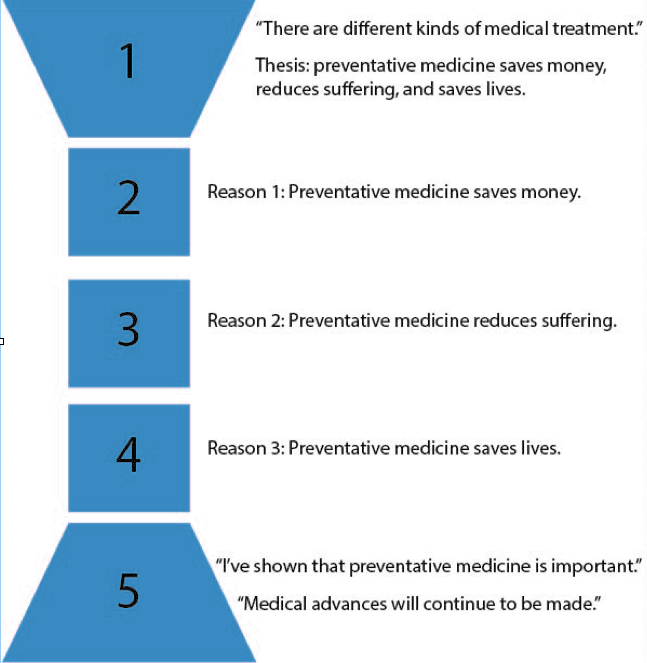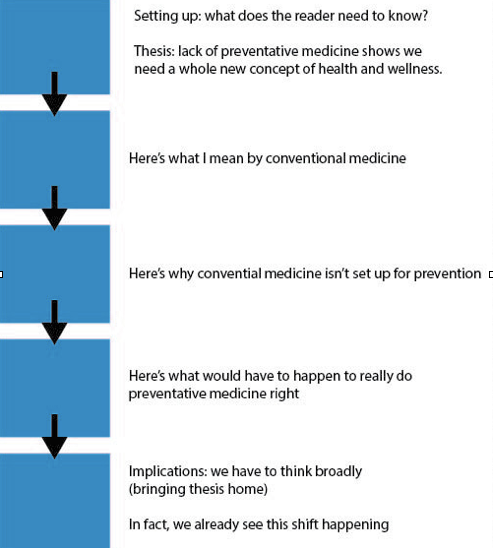
With evidence put forth by research scientists, I strongly favor the fact that global warming is actually taking place. It’s one of the most serious environmental concerns, having disastrous effects on our planet and its components. If it was a myth, then why has the melting rate of glaciers increased? Why have records shown increase in the Earth’s temperature by 1.4° F? Why has the percentage of carbon dioxide experienced a sharp rise in the recent years? Are these evidences not enough? This phenomenon will be explained in better details, with more facts and truth, in the core of my thesis paper.
The argumentative thesis statement examples explained in this article shall let you know how to write a statement for argumentative topics. Read the content to understand the outline.
According to me, social networking is a real boon, only when used for a clear purpose, and without getting addicted to it. The websites have made communication fast and easy. Connecting globally with people seems no more an unattainable task. Thus, it becomes a boon when you are actually using it for the purpose it’s meant to be. So, why not make an effort to make it more effective, rather than pondering more on the detrimental effects of its addiction? Can we not utilize only the merits of social networking? Supporting this view, I compose my thesis paper.
The argumentative thesis statement examples explained in this article shall let you know how to write a statement for argumentative topics. Read the content to understand the outline.
Example #2: Social Networking
In the task of writing a thesis paper, its statement holds a significant position in the entire content. The statement is an abstract, where you explain your subject in short. A dissertation containing a well-written statement is appreciated much more by reviewers, than those without a statement. In this article, the examples put forth, will help you understand how to write a statement for a debatable topic.
Although it is a subject of substantial ethical concern, in my views for this topic, I support animal testing. If it is forbidden, how would the efficacy of a product be proved? Sacrifice and killings cannot be stopped, but why not refine the motive? A drug tried and tested on animals, is a confirmatory test of its safety. Sounds gruesome, right? The theory says, “In order to gain something, we have to lose something.” Based on this, I frame the subject matter of my research work on animal testing.
Thesis statements are of three types: argumentative, analytical, and expository. In argumentative topics, the statement revolves around judgments, theories, debatable matters, and your opinion. All these facts are summed up in the statement section. Thus, the reader gets an overview of the subject matter. The attention of the reader will be instantly garnered onto the statement if it’s well-written and concise. Writing a lengthy one is not really commendable, because the details will already be furnished in the body of the content. While writing for an argumentative thesis, you have to put forth your opinions clearly so that the reader clearly knows whether you are supporting the argument, or are against it. You can also include argumentative statements while writing essays.
Writing a thesis statement is not at all difficult if you have in-depth knowledge about your subject matter. You need to pick up the points wisely, and highlight the most important facts. This way, the attention of the reader will be focused more on the statement, and he/she can easily get the flow of your content.

In this thesis, I have made a claim about the theme in Narnia followed by my reasoning. The broader scope of this thesis allows me to write about each of the series’ seven novels. I am no longer limited in how many body paragraphs I can logically use.
In this persuasive thesis statement, you see that I state my opinion (the best type of sandwich), which means I have chosen a stance. Next, I explain that my opinion is correct with several key reasons. This persuasive type of thesis can be used in any essay that contains the writer’s opinion, including, as I mentioned above, compare/contrast essays, narrative essays, and so on.
Students usually end up using different terminology than simply “because,” but having a template is always helpful to get the creative juices flowing.
Position: A thesis statement always belongs at the beginning of an essay. This is because it is a sentence that tells the reader what the writer is going to discuss. Teachers will have different preferences for the precise location of the thesis, but a good rule of thumb is in the introduction paragraph, within the last two or three sentences.
 Formula for a Strong Argumentative Thesis
Formula for a Strong Argumentative Thesis

Whether you’re writing an argumentative paper, an informative essay, or a compare/contrast statement, you need a thesis. Without a thesis, your argument falls flat and your information is unfocused. Since a thesis is so important, it’s probably a good idea to look at some tips on how to put together a strong one.
Peanut butter and jelly sandwiches are fun to eat because they always slide around.
Instead, we’re talking about a single sentence that ties together the main idea of any argument. In the context of student essays, it’s a statement that summarizes your topic and declares your position on it. This sentence can tell a reader whether your essay is something they want to read.
A thesis can be found in many places—a debate speech, a lawyer’s closing argument, even an advertisement. But the most common place for a thesis statement (and probably why you’re reading this article) is in an essay.

Prompt 1: Should high school students be required to do volunteer work? Why or why not?
Bad thesis statement: No, I don’t think high school students should be required to do volunteer work because it’s boring.
Good thesis statement: I think high school students should not be required to do volunteer work because it takes time away from their studies, provides more barriers to graduation, and does not encourage meaningful volunteer work.
A thesis statement is the foundation of your essay. However, sometimes as you’re writing, you find that you’ve deviated from your original statement. Once you’ve finished writing your essay, go back and read your thesis statement. Ask yourself:
Now comes the good stuff: the breakdown of how to write a good thesis statement for an informational essay and then for an argumentative essay (Yes, there are different types of thesis statements: check them all out here). While the approach is similar for each, they require slightly different statements.
- In this essay, I will describe the history and cultural importance of the Pittsburgh Steelers, my favorite sports team.
- The Pittsburgh Steelers are my favorite because they have had a lasting impact on the history and culture of the city.
- Through my research, I learned that the Pittsburgh Steelers have had a lot of influence on the history and culture of Pittsburgh.
Argumentative essay thesis statements
- Who is your hero and why?
- How do scientists research the effects of zero gravity on plants?
- What are the three branches of government, and what do each of them do?
Prompt 3: Some argue that video games are bad for society. Do you agree? Why or why not?
Bad thesis statement: Video games aren’t bad for society, because they’re super fun.
Good thesis statement: Video games aren’t bad for society because they encourage cooperation, teach problem-solving skills, and provide hours of cheap entertainment.
Original question: Who is your hero and why?
Drop the question words: Who is your hero and why?
Answer the question using the key words: My hero is Amelia Earhart, because she was very brave, did things many women of her time did not do, and was a hard worker.
- Write about your favorite sports team.
- Describe how a motor works.
- Pick a famous scientist and write about their life.
- Compare and contrast the themes of a poem and a short story.

Linen served as a form of currency in the ancient Mediterranean world, connecting rival empires through circuits of trade. The economic role of linen raises important questions about how shifting environmental conditions can influence economic relationships and, by extension, political conflicts.
You have no doubt been drilled on the need for a thesis statement and its proper location at the end of the introduction. And you also know that all of the key points of the paper should clearly support the central driving thesis. Indeed, the whole model of the five-paragraph theme hinges on a clearly stated and consistent thesis. However, some students are surprised—and dismayed—when some of their early college papers are criticized for not having a good thesis. Their professor might even claim that the paper doesn’t have a thesis when, in the author’s view it clearly does. So, what makes a good thesis in college?
As an instructor, I’ve noted that a number of new (and sometimes not-so-new) students are skilled wordsmiths and generally clear thinkers but are nevertheless stuck in a high-school style of writing. They struggle to let go of certain assumptions about how an academic paper should be. The essay portion of the SAT is a representative artifact of the writing skills that K-12 education imparts. Some students who have mastered that form, and enjoyed a lot of success from doing so, assume that college writing is simply more of the same. The skills that go into a very basic kind of essay—often called the five-paragraph theme—are indispensable. If you’re good at the five-paragraph theme, then you’re good at identifying a clear and consistent thesis, arranging cohesive paragraphs, organizing evidence for key points, and situating an argument within a broader context through the intro and conclusion.
The last key difference is seen in the conclusion. Because the organic essay is driven by an ambitious, non-obvious argument, the reader comes to the concluding section thinking “OK, I’m convinced by the argument. What do you, author, make of it? Why does it matter?” The conclusion of an organically structured paper has a real job to do. It doesn’t just reiterate the thesis
Student Advice

Figures 3.1 and 3.2 contrast the standard five-paragraph theme and the organic college paper:
Experienced writers develop theses in dialog with the body of the essay. An initial characterization of the problem leads to a tentative thesis, and then drafting the body of the paper reveals thorny contradictions or critical areas of ambiguity, prompting the writer to revisit or expand the body of evidence and then refine the thesis based on that fresh look. The revised thesis may require that body paragraphs be reordered and reshaped to fit the emerging three-story thesis. Throughout the process, the thesis serves as an anchor point while the author wades through the morass of facts and ideas. The dialogue between thesis and body continues until the author is satisfied or the due date arrives, whatever comes first. It’s an effortful and sometimes tedious process. Novice writers, in contrast, usually oversimplify the writing process. They formulate some first-impression thesis, produce a reasonably organized outline, and then flesh it out with text, never taking the time to reflect or truly revise their work. They assume that revision is a step backward when, in reality, it is a major step forward.
A good thesis is non-obvious. High school teachers needed to make sure that you and all your classmates mastered the basic form of the academic essay. Thus, they were mostly concerned that you had a clear and consistent thesis, even if it was something obvious like “sustainability is important.” A thesis statement like that has a wide-enough scope to incorporate several supporting points and concurring evidence, enabling the writer to demonstrate his or her mastery of the five-paragraph form. Good enough! When they can, high school teachers nudge students to develop arguments that are less obvious and more engaging. College instructors, though, fully expect you to produce something more developed.

Writing a paper usually starts off 4-6 months prior to the submission date. The process includes brainstorming a topic, gathering references sources, preparing a college thesis statement, doing a research proposal, writing the paper itself, proofreading/editing texts, and doing revisions.
Submitting a thesis, getting it approved, and then defending it are the 3 last stages you’ll have to go through in order to earn your Bachelor’s/Master’s.
Although you might pull off an essay overnight, such an approach won’t get you anywhere near a positive course score if you apply the same rule of thumb to your thesis. Write, rewrite, delete, write again… The neverending process of writing a thesis is a serious test only the best students could pass. We could also help you do it.
There are many free thesis samples on the internet. Some even have a topic similar to yours… Although the temptation to copy-and-paste stuff from the samples might be strong, mind your p’s and q’s and remember about plagiarism. Turnitin will spot plagiarism and get you in trouble. That’s why you have to aim for original texts only.
What is a Thesis in College?
Texts with grammar flaws and poor syntax won’t get past the submission stage. Even a supervisor won’t let you turn in a badly proofread paper. Yes, proofreading a 60-100-page paper is a nightmare but you still have to do it. Plus after the first draft is ready, you might want to add something to or remove from a paper. Between the first and the final draft, there are weeks of meticulous proofreading.
“What was your college thesis about?” – A question they never ask on a job interview.
an investment in knowledge pays the best interest @BenjaminFranklin — eduquote (@eduquote1) January 17, 2020

The last key difference is seen in the conclusion. Because the organic essay is driven by an ambitious, non-obvious argument, the reader comes to the concluding section thinking “OK, I’m convinced by the argument. What do you, author, make of it? Why does it matter?” The conclusion of an organically structured paper has a real job to do. It doesn’t just reiterate the thesis
Figure 3.2, in contrast, represents a paper on the same topic that has the more organic form expected in college. The first key difference is the thesis. Rather than simply positing a number of reasons to think that something is true, it puts forward an arguable statement: one with which a reasonable person might disagree. An arguable thesis gives the paper purpose. It surprises readers and draws them in. You hope your reader thinks, “Huh. Why would they come to that conclusion?” and then feels compelled to read on. The body paragraphs, then, build on one another to carry out this ambitious argument. In the classic five-paragraph theme (Figure 3.1) it hardly matters which of the three reasons you explain first or second. In the more organic structure (Figure 3.2) each paragraph specifically leads to the next.
A good thesis includes implications. Suppose your assignment is to write a paper about some aspect of the history of linen production and trade, a topic that may seem exceedingly arcane. And suppose you have constructed a well supported and creative argument that linen was so widely traded in the ancient Mediterranean that it actually served as a kind of currency [2] . That’s a strong, insightful, arguable, well specified thesis. But which of these thesis statements do you find more engaging?
For example, imagine you have been assigned a paper about the impact of online learning in higher education. You would first construct an account of the origins and multiple forms of online learning and assess research findings about its use and effectiveness. If you’ve done that well, you’ll probably come up with a well considered opinion that wouldn’t be obvious to readers who haven’t looked at the issue in depth. Maybe you’ll want to argue that online learning is a threat to the academic community. Or perhaps you’ll want to make the case that online learning opens up pathways to college degrees that traditional campus-based learning does not. In the course of developing your central, argumentative point, you’ll come to recognize its larger context
Student Advice

In college you need to build on those essential skills. The five-paragraph theme, as such, is bland and formulaic
I should note here that a paper with this kind of momentum often reads like it was knocked out in one inspired sitting. But in reality, just like accomplished athletes and artists, masterful writers make the difficult thing look easy. As writer Anne Lamott notes, reading a well written piece feels like its author sat down and typed it out, “bounding along like huskies across the snow.” However, she continues,
A good thesis is well specified. Some student writers fear that they’re giving away the game if they specify their thesis up front

